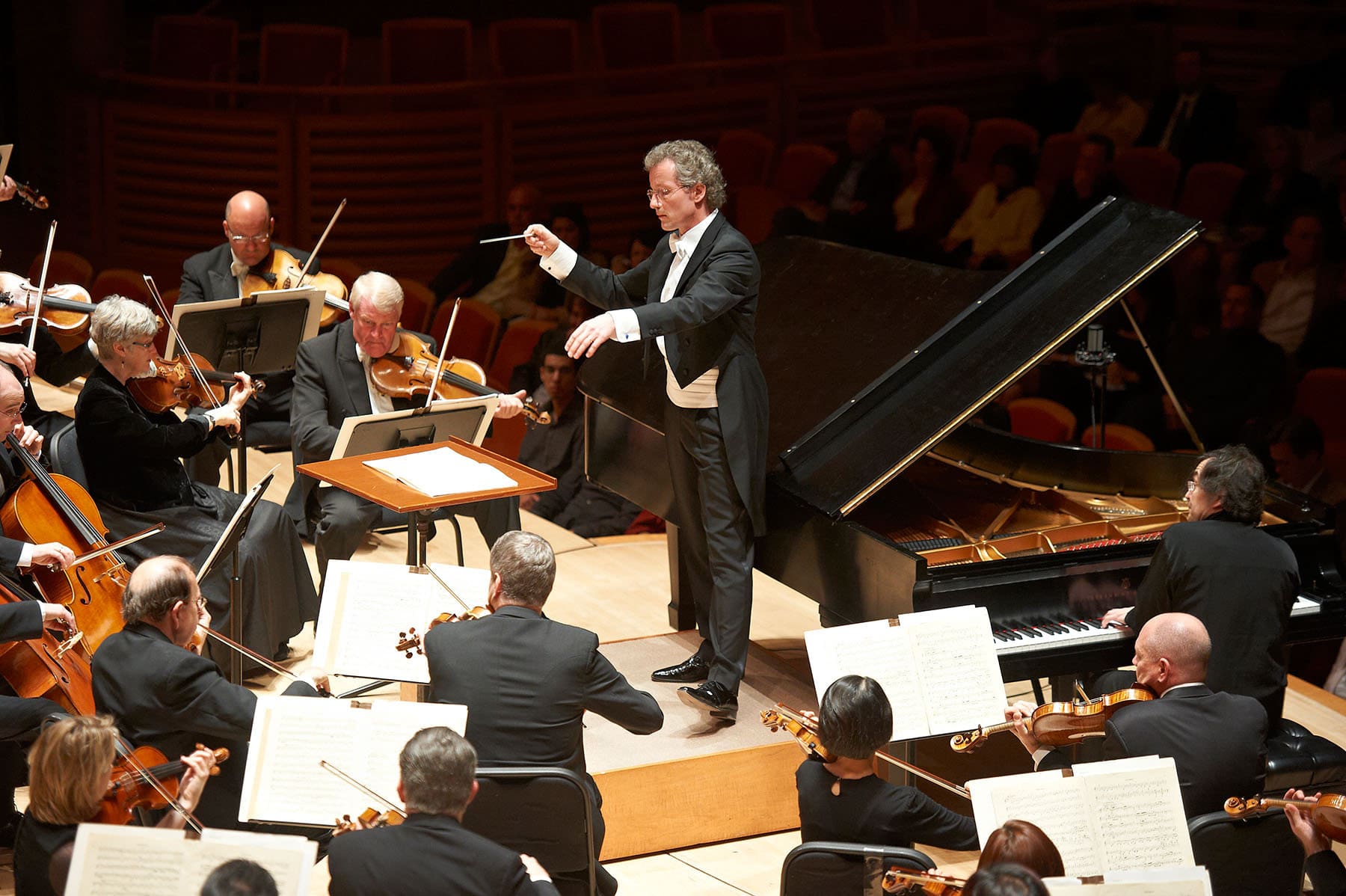Weekend read: The best musicians sleep one hour longer
mainThis is one of the remarkable conclusions of a 1990s study of violin students in Berlin. Read here.

h/t: Zsolt Bognar

This is one of the remarkable conclusions of a 1990s study of violin students in Berlin. Read here.

h/t: Zsolt Bognar
A social media activist has circulated a video…

Zachary Woolfe, chief music critic of the New…

The Berlin State Opera communicated tonight that its…

The Cleveland Orchestra today published its results for…

Session expired
Please log in again. The login page will open in a new tab. After logging in you can close it and return to this page.
The trouble is to define what a best musician is..
So often researchers studying musicians make overly broad and even naive conclusions because they do not understand the full context of the people they are observing. The curriculum requirements for Music Ed majors in Germany are very diverse, rigorous and stipulated by state laws. They are far better and more widely educated than performers whose curriculum is extremely narrow by almost any standards. The far heavier work schedule of Music Ed majors would clearly affect the amount of time they have for sleep, and their practice habits. It’s not possible to draw the sorts of conclusions the author makes by comparing the behavior of students in these two fields.
In another well-known study, “Why They’re Not Smiling: Stress and Discontent in the Orchestra Workplace,” (1996) researchers Seymour and Robert Levine found high levels of job dissatisfaction among orchestra musicians. The authoritarian social structures of the orchestra cause musicians to feel a lack of control over their workplace and artistic identities. This creates stress which leads to learned helplessness, depression, and a reduction in cognitive skills. The researchers note that this leads to the infantalization of musicians. Forced to play the roles of children, “musicians who, when not at work, are perfectly responsible adults, can regress to the level of five-year-olds at work.”
Robert Levine plays in the Milwaukee Symphony and his father is a retired Professor of Psychiatry and Behavioral Sciences at Stanford. Those familiar with orchestras will recognize a good deal of validity in their observations.
The reduction of cognitive skills is especially interesting. Are we to assume that the Mozart-effect creates smarter children, but that when they grow up and become professionals in an orchestra it makes the stupid again. At any rate, I enjoy the ironic humor of it…
It seems impossible to draw any general conclusions from such research projects because orchestras are so different, and also different in different countries and cultures. How about the Chinese, for instance, who live in an authoritarian culture (Confucius)? Or Germans? In a country where individual freedom and personal success is cultivated, an orchestral structure may be felt much more frustrating than in a country where ‘authority’ is generally more acceptable. German orchestras are famous for their professionalism, precision, thoroughness in intonation and work discipline but are also often a bit stiff in performance. French orchestras have a lot of ‘Schwung’, can master difficult scores in short time frames, but hardly ever achieve the type of perfection found in Germany because by that time, concentration wavers (time for a drink). English orchestras get complex music done in amazingly few rehearsels – due to restricted budgets – but often fail to achieve musical and expressive depth, there is not enough time to get there. Egalitarian orchestras in Holland don’t like condutors anyway because they are bossy. And so on.
German professionalism in music education has its pros and contras, it seems. Having lots of free time to be able to be lazy, to explore other cultural territories, to develop as a human being, to sleep long, may be as important or more important than getting your schedule right. Admirable though is how the state makes much work of music education, being part of its national cultural identity.
The Levine’s described American orchestras, but their observations are just as accurate for German orchestras, even though Germany has more authoritarian traditions. The phenomena of learned helplessness and infantalization in orchestras is surprisingly cross-cultural. It is difficult to explain. Even in the military, where authoritarian discipline is far more rigorous, infantalization and learned helplessness are not as common – and would not be accepted.
I think the infantalization and learned helplessness are in part a form of ritualized deference toward conductors necessary for orchestras to function. This then affects the musicians in non-musical aspects of their work as well. The belief must be established that the conductor is vastly superior to the musicians, even though that is rarely the case. “He” is the Maestro who alone knows what is best. They must react to his facial expressions and gestures, including brow-beating. The musicians must even emote upon his command. A peculiar kind of extreme deference and subservience unlike any other human institution is required for this system to work.
This explains why the quality of orchestral performance fell in general after about 1960 even though technical standards became significantly higher. Backed by unions, musicians no longer had to have the same deference and fear of conductors, thus weakening orchestras.
A good way to study this is to compare historical recordings to modern recordings. A good example is Ormandy’s recording of Carmina Burana. It uses a large orchestra and chorus for music that is very elastic in its tempos, phrasing, and dynamics. Ormandy turns the tempos, dynamics, tone, transparency, and expression of the orchestra and chorus on a dime as required by his interpretation. The musicians respond with extreme sensitivity, almost like horses that have been trained to have a great deal of fear from a whip. They dare not lose of moment of concentration or instant obedience. The consequences would have been painful. Same story for conductors like Toscanini, Stokowski, Reiner, Furtwangler, and others.
There is not a single recording of Carmina Burana from the last quarter century that even remotely reflects that kind of orchestral cohesion and discipline. The musicians simply do not need to be that fearfully obedient, so they aren’t. Conductors no longer even try to create those kinds of interpreations, because it is not possible. The recording thus come off as rather flat and banal, almost as if they are simply being read through.
These changes also evolved as a few jet-set conductors flew around the world to present concerts with so few rehearsals that they are essentially readings – another reason deeper interpretations are seldom attempted. The depth, cohesion, elasticity, and variation of much orchestral music has thus been lost, at least compared to many earlier recordings. Higher technical standards compensate to some degree, but the deficiencies are still often notable. This is one more part of the slow death of the orchestra and its social and artistic anachronisms. We see how the greatest artistic failure of 20th century classical music was its inability to develop ensembles and forms of music-making consistent with contemporary, democratic values. Which composers will finally formulate those visions?
Thanks for this thoughtful analysis.